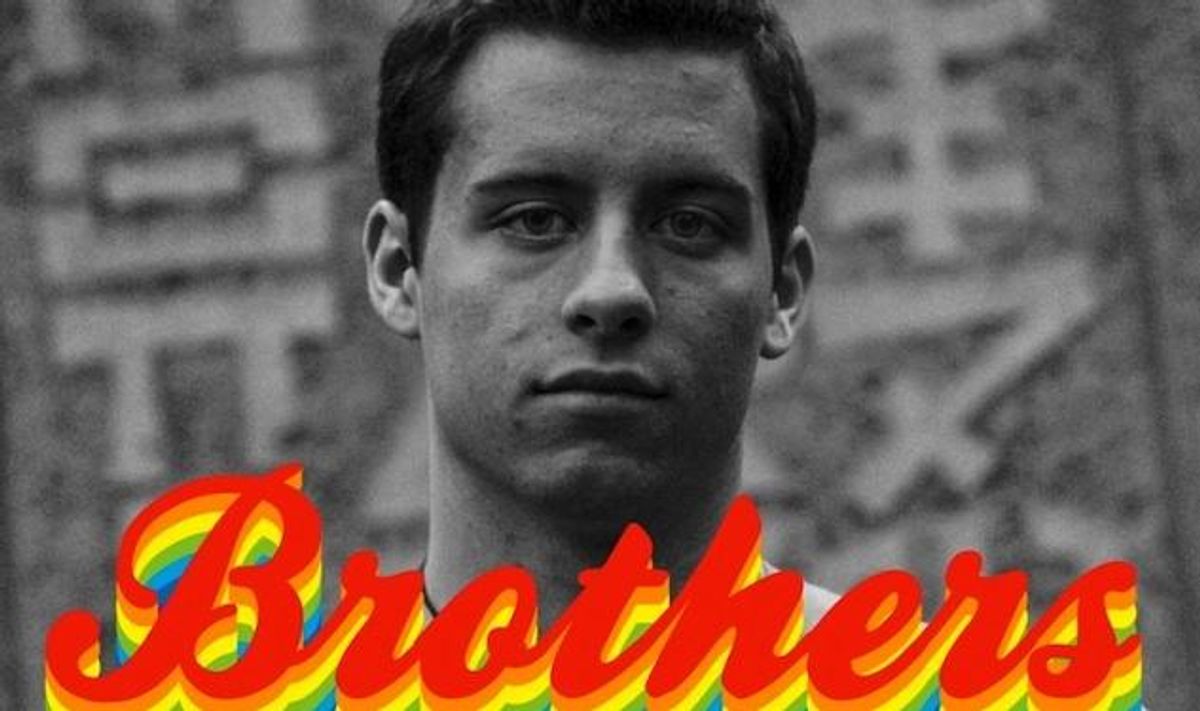Popnography
Gay Frat Life: The Changing Face of American Colleges

Gay frat member at The University of Oregon says his peers 'never cared about my sexual orientation'
January 11 2013 4:27 PM EST
November 23 2018 6:02 AM EST
By continuing to use our site, you agree to our Private Policy and Terms of Use.

Gay frat member at The University of Oregon says his peers 'never cared about my sexual orientation'
A fraternity, usually thought of as a hotbed of machismo and sometimes very demeaning and dangerous hazing, isn't exactly a place where most gay college students would typically feel welcome or accepted. But things are changing. Sophomore and out fraternity brother Andrew Lubash told the University of Oregon's newspaper, The Daily Emerald that, "My fraternity was really good about it. They've never cared about my sexual orientation."
For Lubash, his homosexuality never stopped his decision to rush, "In fact, the UO sophomore said that when he rushed last winter, there were already four other men in his fraternity who were openly gay, one in his pledge class." Lubash said, "I don't think I've ever even needed the support, because it's never been a problem." In the accompanying video, gay UO senior and AEPi brother, Jacob Sembler says, "I've always felt the strongest support and brotherly love from my brothers."
Chicora Martin, director of the University of Oregon LGBT Education and Support Services Program told The Daily Emerald: "The thing is, it's okay to be gay in a fraternity, but it's not okay to be the person who's gay in that fraternity. Though all of them will say that they are okay with having gay men, some chapters just aren't as personally welcoming as others. Historically fraternities have been very closed to homosexuality in general. They have to be very proactive to reach out to those men and show them that they will be respected and not discriminated against"
Gay sophomore Marco Reyes also shared his thoughts, telling the paper that he didn't feel like he had quite the positive reception that Lubash and Sembler had. "I could feel an immediate change in attitude when they found out I wasn't really into football," Reyes said. "Like they didn't really know what to do with me. And the fact that me not liking football just added to that stereotypical gay, unmanly personality."
While fraternities may be (slowly) progressing into more accepting environments, American universities as a whole are progressing at a rapid rate. As the New York Times also found, students "are challenging the curriculum much as gay activists did in the '80s and '90s. Rather than protest the lack of gay studies classes, they are critiquing existing ones for being too narrow."
The intent is to incorporate the many developing ways of identifying under the umbrella of L.G.B.T.Q.I.A. (lesbian, gay, bisexual, trans, queer or questioning, intersex, asexual or ally). The article continues to say that "this generation is seeking something more radical: an upending of gender roles beyond the binary of male/female. The core question isn't whom they love, but who they are -- that is, identity as distinct from sexual orientation."
Age-old institutions like fraternities are going to need to adapt their conservative approaches and definitions of sexuality and gender if they're going to keep up with the steamroller of progress and identity that is "Generation L.G.B.T.Q.I.A".